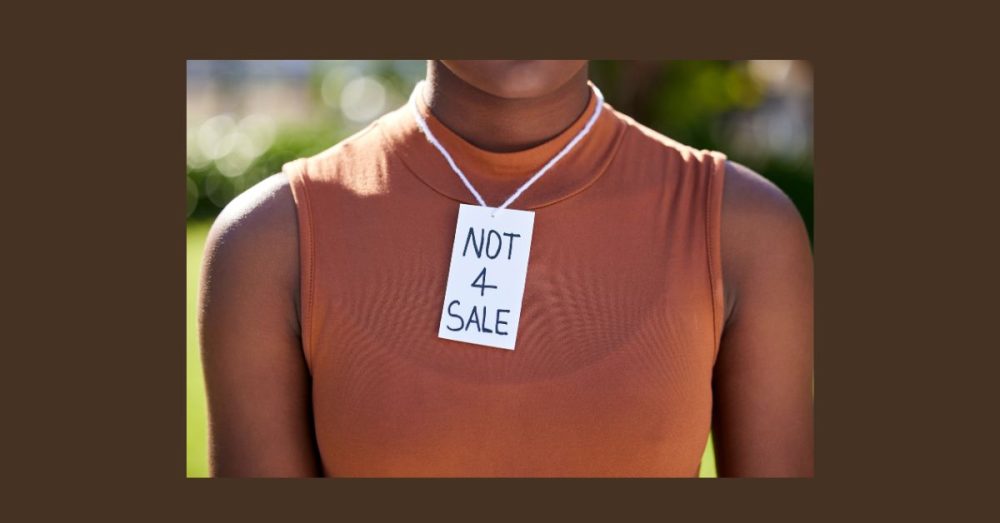Software company Salesforce is involved in a legal battle following allegations that it assisted in the selling of sex trafficking victims online.
Texas sex trafficking survivors are suing the company, claiming that it provided a sex-selling marketplace, Backpage, with the technology and services it needed to continue the illegal business and avoid detection from law enforcement.
Backpage was a commonly used online marketplace where traffickers would list sex advertisements. Once known as the largest online sex trafficking marketplace in the world, the service was shut down in 2018. The shutdown was made possible through the cooperation of multiple federal and state agencies, including the Law Enforcement Division of Texas Att. Gen. Ken Paxton’s office.
“Backpage generated millions of dollars annually on the backs of innocent women and children who were forced or coerced into sex trafficking,” Paxton said in a press release.
“Taking down this despicable website will undoubtedly save lives and spare many others from the unspeakable horrors of sex trafficking,” Paxton continued.
Last month, Backpage founder Michael Lacey was sentenced to five years in prison and fined $3 million for money laundering and the promotion of and profit from prostitution, per NPR.
According to the lawsuit against Salesforce, Backpage earned over 99% of its revenue from adult ads, the majority of which came directly from prostitution and sex trafficking.
“Specifically, sex traffickers used Backpage to ‘post’ particular victims for sale, which enabled traffickers to ‘reach entirely new audiences, evade law enforcement, and maintain control of victims by transporting them quickly between locations, thus maximizing profits far beyond traditional trafficking methods,'” the lawsuit reads.
In 2013, Salesforce partnered with Backpage in a series of contracts in Texas, where Salesforce assigned Texas-based employees to provide technical support to Backpage. The Texas-based employees reportedly built out Backpage’s CRM software to “promote, develop, and grow its internet-based online selling of sex, sex trafficking, and compelled prostitution.”
Salesforce is coming under fire for helping Backpage with its customer and user activity, surveillance of customers, and collecting information about its users, all to help Backpage more effectively target traffickers and sex buyers.
The tech company attempted to defend itself by citing Section 230 of the 1996 Communications Decency Act, which protects online platforms from being held liable for user content. The act says that “internet platforms are not to be treated as publishers of third-party content.”
However, U.S. District Judge Jane Boyle ruled that Section 230 doesn’t apply to the software firm because the lawsuit targets Salesforce’s own actions, not those committed by third parties.
Additionally, the lawsuit claims that Salesforce is guilty under Chapter 98 of the Texas Civil Practices and Remedies Code, which states that a party who engages in the trafficking of people or intentionally benefits from participating in the assistance of trafficking is liable for any amount of damages arising from the trafficking.
Salesforce argued that if the sex trafficking victims were trafficked to and injured in areas outside of Texas, the company should no longer be held reliable. A judge from the Dallas division of the U.S. District Court ruled that the argument does not justify the dismissal of the case at this time.
Salesforce is also facing a lawsuit in Florida over alleged complicity in child sex trafficking. The lawsuit claims that Salesforce supplied the technology for trafficking. At the same time, several national hotel chains, including Wyndham Hotels, Days Inn, Holiday Inn & Suites, and more, provided the location for trafficking to occur.
Ways to get involved in preventing and stopping sex trafficking can be found here.
In some regions of Dallas, there is a significant problem with sex trafficking, particularly in Council Member Omar Narvaez’s District 6. This district usually has the highest number of reported cases of prostitution-related offenses, as noted previously by The Dallas Express.
The Dallas Police Department is currently facing staffing challenges, which hamper officers’ ability to help address crime. There are only about 3,000 officers on active duty, despite an earlier analysis by the City recommending a force of approximately 4,000 to adequately police an area of its size.
Further challenging the police, the Dallas City Council authorized a budget of just $654 million for the DPD for this fiscal year, which is significantly less taxpayer funding compared to what is being allocated to public safety in high-crime cities such as Chicago, Los Angeles, and New York City.


